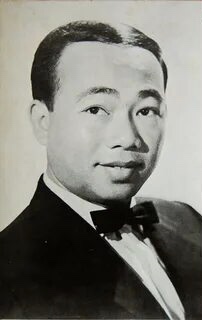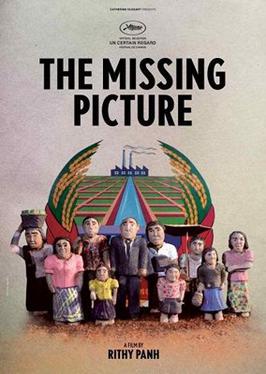Related Research Articles

The music of Cambodia is derived from a mesh of cultural traditions dating back to the ancient Khmer Empire, India, China and the original indigenous tribes living in the area before the arrival of Indian and Chinese travelers. With the rapid Westernization of popular music, Cambodian music has incorporated elements from music around the world through globalization.

Haing Somnang Ngor was a Cambodian American gynecologist, obstetrician, actor and author. He won the Academy Award for Best Supporting Actor in 1985 for his debut performance in the film The Killing Fields (1984), in which he portrayed Cambodian journalist and refugee Dith Pran.

Sinn Sisamouth was a Cambodian singer-songwriter active from the 1950s to the 1970s. Widely considered the "King of Khmer Music", Sisamouth, along with Ros Serey Sothea, Pen Ran, Mao Sareth, and other Cambodian artists, was part of a thriving pop music scene in Phnom Penh that blended elements of Khmer traditional music with the sounds of rhythm and blues and rock and roll to develop a Cambodian rock sound. Sisamouth died during the Khmer Rouge regime under circumstances that are unclear.

Ros Serey Sothea was a Cambodian singer. She was active during the final years of the First Kingdom of Cambodia and into the Khmer Republic period. She sang in a variety of genres; romantic ballads emerged as her most popular works. Despite a relatively brief career she is credited with singing hundreds of songs. She also ventured into acting, starring in a few films. Details of her life are relatively scarce. She disappeared during the Khmer Rouge regime of the late 1970s but the circumstances of her fate remain a mystery. Norodom Sihanouk granted Sothea the honorary title "Queen with the Golden Voice."

The Killing Fields is a 1984 British biographical drama film about the Khmer Rouge regime in Cambodia, which is based on the experiences of two journalists: Cambodian Dith Pran and American Sydney Schanberg. It was directed by Roland Joffé and produced by David Puttnam for his company Goldcrest Films. Sam Waterston stars as Schanberg, Haing S. Ngor as Pran, and John Malkovich as Al Rockoff. The adaptation for the screen was written by Bruce Robinson; the musical score was written by Mike Oldfield and orchestrated by David Bedford.

Cinema in Cambodia began in the 1950s, and many films were being screened in theaters throughout the country by the 1960s, which are regarded as the "golden age". After a near-disappearance during the Khmer Rouge regime, competition from video and television has meant that the Cambodian film industry is a small one.

Dy Saveth is a Cambodian actress and first Miss Cambodia (1959) often referred to as the "actress of tears". She is "one of the most beloved actresses from the 1960s era of Cambodian film".
Tep Rindaro is a Cambodian actor and singer. He started acting in 1987. With his career spanning more over 30 years, he is one of the longest starring actors in Cambodia since the fall of the Khmer Rouge in 1979.

The Red Sense is a 2006 Khmer-Australian supernatural thriller film. It was director Tim Pek's debut film and was produced by Transparent Pictures. The success of The Red Sense led Transparent Pictures to produce films such as Bokator and Annoyed. The Red Sense was first released in Australia in August 2008, and though banned for general release there, screened in Cambodia in December that year. It is rated M by the Office of Film and Literature Classification of Australia.
Horror films in Cambodia, first popular in the 1970s, have received renewed attention in Cambodian film making since the resurgence of the local industry in 2003. Horror is one of three popular genres into which most Cambodian films can be loosely grouped, the other two being period pieces and melodrama/romantic drama. The fledgling Cambodian industry of the mid 2000s looked to capitalize on the world-wide popularity of Japanese horror films which have heavily influenced Cambodian horror films. Common themes are ghost or spirit hauntings, possession, folk mythology and revenge by supernatural means. The storytelling takes a slower pace than Western horror and relies on suspense, a pervasive sense of doom and dread, and psychologically disturbing events and situations. Unlike its Japanese counterparts however, many Cambodian horror films also feature over the top gore as seen in Western horror.

Enemies of the People is a 2009 British-Cambodian documentary film written and directed by Rob Lemkin and Thet Sambath. The film depicts the 10-year quest of co-director Sambath to find truth and closure in the Killing Fields of Cambodia. The film features interviews of former Khmer Rouge officials from the most senior surviving leader to the men and women who slit throats during the regime of Democratic Kampuchea between 1975 and 1979.

Two Shadows is a narrative drama film released in 2012. The film won the Audience Award, Cinematography Award and was nominated for the Grand Jury Award at the 2012 Los Angeles Asian Pacific Film Festival. It is one of the first films to focus on Cambodian immigrants in the United States seeking surviving family connections in Cambodia since the fall of 1970s communist party, the Khmer Rouge. The film is the second collaboration between director Gregory Cahill and actress Sophea Pel, following the 2006 short film The Golden Voice about Cambodian singer Ros Serey Sothear. The film was shot primarily in Cambodia and also in Los Angeles, California.

The Missing Picture is a 2013 Cambodian-French documentary film directed by Rithy Panh about the Khmer Rouge. It was screened in the Un Certain Regard section at the 2013 Cannes Film Festival where it won the top prize. It was also screened in the World Cinema section at the 2013 Cinemanila International Film Festival where it won the Grand Jury Prize. It won the Lumières Award for Best Documentary at the 21st Lumières Awards and was nominated for the César Award for Best Documentary Film at the 41st César Awards as well as for the Academy Award for Best Foreign Language Film at the 86th Academy Awards.

Cambodian genocide denial is the belief expressed by some Western academics that early claims of atrocities committed by the Khmer Rouge government (1975–1979) in Cambodia were much exaggerated. Many scholars of Cambodia and intellectuals opposed to the U.S. involvement in the Vietnam War denied or minimized reports of human rights abuses of the Khmer Rouge, characterizing contrary reports as "tales told by refugees" and U.S. propaganda. They viewed the assumption of power by the Communist Party of Kampuchea as a positive development for the people of Cambodia who had been severely impacted by the Vietnam War and the Cambodian Civil War. On the other side of the argument, anti-communists in the United States and elsewhere saw in the rule of the Khmer Rouge vindication of their belief that the victory of Communist governments in Southeast Asia would lead to a "bloodbath."

Davy Chou is a Cambodian-French filmmaker. He has written, directed and produced several films. Chou made his feature length debut with Diamond Island (2016) and made his follow-up with the film Return to Seoul (2022).

Kalyanee Mam is a filmmaker whose film, A River Changes Course, which she directed and produced, has won several awards, including the Grand Jury Award for World Cinema Documentary at the 2013 Sundance Film Festival and the Golden Gate Award for Best Documentary Feature at the 2013 San Francisco International Film Festival.

Rising Falcon Cinema is Gregory Cahill's production company. It also was one of the production companies involved with Two Shadows and The Golden Voice. Cahill is working on a new project, Metalheads, through Rising Falcon Cinema as well.
The Golden Voice is a short film written by Gregory Cahill. It stars Sophea Pel as Ros Serey Sothear.
Cambodian rock of the 1960s and 1970s was a thriving and prolific music scene based in Phnom Penh, Cambodia, in which musicians created a unique sound by combining traditional Cambodian music forms with rock and pop influences from records imported into the country from Latin America, Europe, and the United States. U.S. armed forces radio that had been broadcast to troops stationed nearby during the Vietnam War was also a primary influence. This music scene was abruptly crushed by the Khmer Rouge communists in 1975, and many of its musicians disappeared or were executed during the ensuing Cambodian genocide. Due to its unique sounds and the tragic fate of many of its performers, the Cambodian rock scene has attracted the interest of music historians and record collectors, and the genre gained new popularity upon the international release of numerous compilation albums starting in the late 1990s.
Mao Ayuth was a Cambodian filmmaker and politician. One of the few filmmakers to survive the Khmer Rouge regime, he was noted, alongside Dy Saveth, Yvon Hem, and Bun Yim, as connecting contemporary Cambodian cinema with its golden age of the 1960s and 1970s. He died during the COVID-19 pandemic.
References
- ↑ "Rising Falcon Cinema".
- ↑ "The Golden Voice | A Graphic Novel". thegoldenvoicemovie.
- ↑ "L.A. Asian Pacific fest bestows prizes". May 24, 2012.
- ↑ "Gregory Cahill". IMDb .
- 1 2 "CREW • Two Shadows". Archived from the original on March 4, 2016. Retrieved January 6, 2016.
- ↑ "Rising Falcon Cinema Las Vegas NV, 89107 – Manta.com".
- ↑ Living in cinema [ dead link ]
- ↑ "REMINDER: 'Two Shadows' film premiere Nov. 4 marks return of West Seattle's Christen Marquez".
- ↑ "Metalheads". Archived from the original on December 22, 2015. Retrieved December 9, 2015.